As the menopause market grows, hundreds of products are cropping up online and in supermarkets. But just how trustworthy are they? And do rogue operators risk creating a backlash?
Davina McCall recalls the first time she experienced a menopause symptom. “One night I was suddenly unable to sleep,” the TV presenter tells the camera. “The day after, I felt like I’d aged 10 years overnight.”
Hot flushes ensued. At 44, McCall believed she was too young to be experiencing menopause. She initially felt “real shame” – then she started to get “angry”. This was the premise of her 2021 documentary, which argued women had been “badly served by science”.
The programme – Davina McCall: Sex, Myths and the Menopause – marked the start of the so-called ‘menopause revolution’. High-profile women shared their experiences. Stigma was shed. And in April 2023, the NHS unveiled HRT prescription prepayment certificates to help with the cost of treatment.
At the same time, a burgeoning consumer market of supplements, skincare and haircare lines came to the fore. This development, however, has not been received with quite the same universal approval.
Brands have faced social media backlash for “patronising” women – and, in an increasing number of cases, falling foul of advertising standards rules. As they look to target an ever wider age range of women with menopause lines, scepticism is growing.
So to what extent is this market a positive force? Can brands and retailers get involved responsibly? Or are women once again – as McCall complained – being “badly served by science”?
The opportunity for brands is no doubt sizeable. As many as 15.5 million women will experience menopause at any one time, according to GenM, the organisation behind the MTick shopping symbol for menopause-friendly brands.
“The market will strengthen as education around menopause increases, and women continue to seek out products that can support them,” says Heather Jackson, co-founder of GenM. “The potential for expansion is immense, as brands and retailers begin to cater specifically to the unique needs of this demographic, driving innovation and product offerings.”
Already in 2023, the market was worth $16.9bn globally [Grand View Research]. And as Jackson points out, the potential is far higher. According to Forbes, it could reach $600bn by 2030. That potential has been a driving force behind NPD. Mintel counted hundreds of global food, drink and BPC launches mentioning the menopause on-pack between January 2020 and December 2023, with 86% in beauty and personal care.
A wider range of options for menopausal women is no doubt positive. But the growth of this market has also fuelled the launch of more dubious products that target women at this life stage – as well as spurious advertising claims. In the past four months alone, the Advertising Standards Authority (ASA) has rapped five brands for misleading claims around the menopause.
In June, supplement brand Feel was ticked off for claiming its product could “relieve the symptoms of perimenopause, menopause, and post-menopause”. That same month, Rejuvit drew the regulator’s ire for a customer quote claiming “I lost weight, I felt more energised, and the hot flashes [sic] were gone”.
Another example is Aida Wellbeing, which had to take down an ad in April due to a testimonial claiming its VolcanicX Bracelet had relieved “meno-bloat” in 48 hours. Just this month, Feminapause came under scrutiny for misleadingly implying FSA approval.
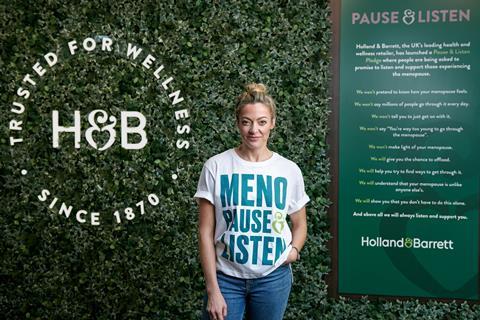
Crucially, any talk of relieving symptoms could push these products into medicinal territory – which comes with strict checks and balances. The level of breaches on this front was enough for the ASA to issue specific guidance in August, which stressed any products making medicinal-style claims should work with the Medicines & Healthcare products Regulatory Agency (MHRA).
A quick scan online shows many brands are sailing close to the wind on that score. Take MPowder’s PeriBoost product, sold at a price point of over £40 for 15 servings at stockists including Boots and Holland & Barrett. In its description on Holland & Barrett’s site, it cites research that shows “89% of women saw improvements across seven key symptoms of perimenopause in 30 days”.
Then there’s NuMind’s Menopause Support x Charlotte Hunter, which costs £74.99 as a one-time purchase for 30 days’ supply. On NuMind’s website, it promises to “effectively manage the symptoms of perimenopause, menopause and beyond”.
Unless they have a licence with the MHRA, it’s the kind of claim that attracts attention from regulators.
Even brands that are working well within the rules – making non-medicinal claims based on research – are facing scrutiny. “The quality of the evidence for supplements in menopause is often limited by study design and placebo effect,” says Estelle Kearney, women’s health and gut health specialist dietitian at The Gut Health Clinic.
“There is a role for the supplementation of certain vitamins and minerals such as vitamin D, calcium and omega 3 fatty acids, however specific recommendations will vary on an individual basis.”
The peri-menopause boom: five products targeted at the first signs
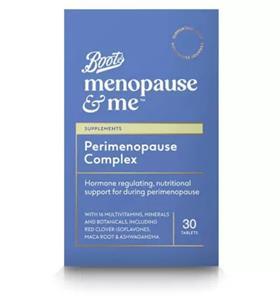
Boots Perimenopause Complex
Last October, Boots reported a big rise in demand for information on perimenopause. To cater for those shoppers, it launched a perimenopause complex as part of its Menopause & Me range that month. It contains 16 multivitamins and botanicals, including maca root and ashwagandha (rsp: £14.50/30 tablets).
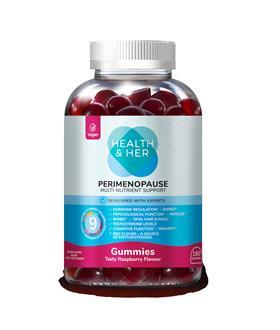
Health & Her Perimenopause Gummies
It can be tricky to get all the benefits of a tablet in gummy form, says Health & Her founder Kate Bache. But armed with a chemist background, Bache overcame the challenge to launch this line in May (rsp: £29.99/30 gummies). The formula includes red clover and B vitamins to support hormone regulation and energy.
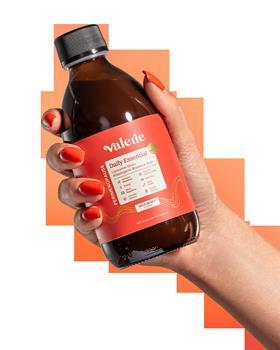
Valerie Daily Essential for Perimenopause
This daily liquid supplement launched in August with a pledge to make its users “feel f***ing awesome”. Containing 11 active ingredients, such as ashwagandha and magnesium, it comes at £54 for a month’s supply. It lists no fewer than 76 potential health benefits, including improved energy and focus.
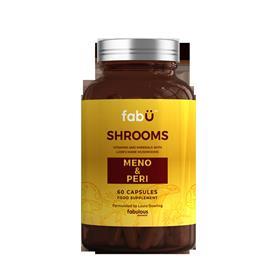
Fabü Shrooms Meno & Peri
Fabü uses its mushroom content as a key selling point of this line for perimenopausal and menopausal women. The formula contains lion’s mane mushroom, fortified with vitamin D, vitamin K2, vitamin B6, vitamin B12, and chromium. Having made its debut in Ireland, the line arrived in the UK this year, priced at £24.99 for a month’s supply.
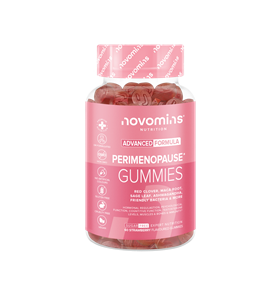
Novomins Perimenopause Gummies
Novomins says it is run by a team of doctors, scientists and nutritionists who are “committed to providing customers with the highest quality”. This perimenopause SKU joined its lineup this month with ingredients such as red clover, sage leaf and maca root. It comes in at £17.99 for a month’s supply.
‘The emperor isn’t wearing clothes’
The concerns are echoed by Anne Henderson, a consultant gynaecologist and one of the 250 certified British menopause specialists in the country. She runs the Amara Clinic in Royal Tunbridge Wells, Kent, which supports thousands of women in managing their menopause symptoms.
“Vitamins can be really beneficial,” she says. However, Henderson is particularly concerned by rogue brands making spurious claims – especially when NHS support for menopause is so limited. “Where I feel uncomfortable is the menopause sector is a very vulnerable one,” she says. “Women get desperate and will try to get help wherever they can.”
“Often they’ll go for the products with the social media marketing rather than good quality. I said to one patient, ‘It’s like the emperor’s new clothes. There’s nothing,’” Henderson argues.
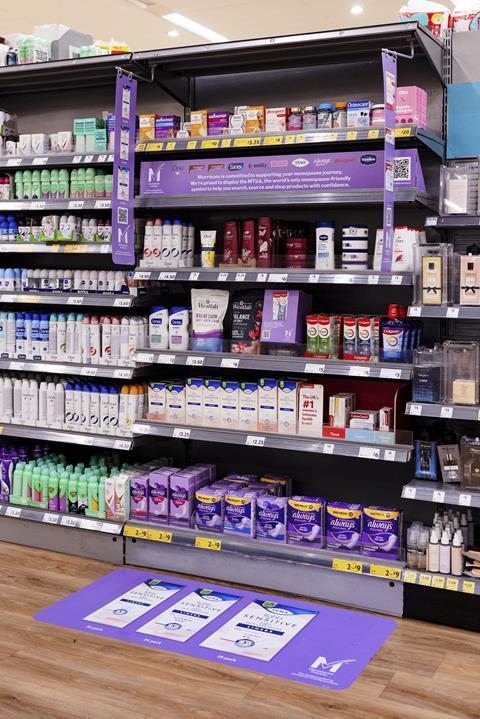
For menopause campaigner and journalist Kate Muir, the issue runs deeper than just breaches of advertising rules. She was a vocal critic of Holland & Barrett’s menopause chocolate – a dark chocolate & almond block launched in May, which made a selling point of its high fibre and vitamin B6 content.
While it didn’t break any regulations, critics were also keen to point out the high saturated fat content of the line, which sold for £3.79 – and the lack of discernible benefits over, say, a pack of almonds.
Muir called out Holland & Barrett for “menowashing” and advised women to avoid “ridiculous money-making products like this”.
Of course, Holland & Barrett stocks far more than just menopause chocolate, which no longer appears present on its site. It is one of the leading retailers in this category, with 80 products in its online menopause aisle (see left).
And to its credit, Holland & Barrett is investing in research. The retailer has committed over £4m to its women’s health offer, backed by a three-year plan to address four key areas: democratising access to support; closing the research gap; enabling health equity; and leading in innovation with women in mind.
All 4,000 of its colleagues are trained in women’s health, says the retailer, which has menopause advisors and nutritionists available online and in-store. It also offers a free nurse-led helpline to customers.
“We have a stringent [set of] criteria to ensure we are sourcing products from suppliers/brands who share the same values and expectations on product quality and efficacy of ingredients as us,” Holland & Barrett adds.
Kate Bache, whose Health & Her supplement brand is listed in Holland & Barrett, says it is one of the most “well educated” retailers on the subject.
For her, the scepticism around the category has been brought about by rogue brands letting the side down. Those making outlandish claims on TikTok, especially, “give the whole category such a bad name. No wonder people are a bit sceptical.”
It’s a particular frustration for Bache, given that she founded the Health & Her brand in 2019, “well before all the hype” around menopause began. “We didn’t feel the market was served at that point,” she says. Coming from a chemist background, she has conducted rigorous research in the development of her product range.
That is backed by a responsible approach to marketing. “No one should be saying ‘symptom’, we talk about signs and experiences,” she says. Bache is also wary of scaremongering: “We never focus on negatives, always on benefits.”
How women of different ages think about the menopause
74%
aged 35-44 have thought about the menopause
25%
aged 35-44 believe the discussion around menopause reduces the taboo
59%
aged 45-54 would be open to buying menopause supplements
81%
aged 45-54 would have no embarrassment buying a menopause product
41%
aged 55+ don’t trust the claims made in menopause products
22%
aged 55+ believe the attention around menopause is commercially driven
Source: Vypr poll of 1,125 women for The Grocer, September 2024
Health & Her isn’t the only brand to pride itself on a scientific background and approach. The Sisterly brand, for example, was created by three women who wanted to improve the women’s health space, in partnership with nutritional biochemist Dr Daniel Jones. It has only one line – The Elevator – billed as the “gold standard” in supplements. Customers include famous faces such as Irish Olympian Sonia O’Sullivan.
Interestingly, both of those brands say they cater for the perimenopause. The period before full menopause – which typically lasts four years but can last as long as 10, according to WebMD – is becoming a hotbed of activity. It’s defined by women who experience symptoms, yet haven’t passed into full menopause, which means at least 12 months without a period.
“Awareness of perimenopause is growing, and there is therefore an opportunity for market growth,” says GenM’s Jackson.
Indeed, a new report by Valerie – whose perimenopause line is featured above – points to the size of the opportunity. Perimenopause queries make up nearly a quarter of searches for menopause, it found, but only 11% of products on the market are specifically for this demographic – meaning it’s “potentially underserved”.
It’s a point also made by Boots, the biggest player in this market, which launched its own line (above) after its pharmacists received “more questions around the perimenopause specifically”.
Younger women are certainly more open to products. While 41% of those aged 55-plus don’t trust the claims on menopause lines, that figure falls to 25% among 35 to 44-year-olds, according to research conducted by Vypr on behalf of The Grocer. “Women aged 55-plus are most sceptical of the conversation surrounding the menopause,” says Tasmin Sibbald, operations director at Vypr. “Younger women have a bit more trust.”
There is controversy around targeting ever younger ages with perimenopause marketing, though. Certain brands and influencers are increasingly reminding women that perimenopause can start in their thirties – offering everything from diet plans to perimenopause journals as support.
Yet in reality, the chances of starting menopause before 40 are relatively rare. According to GenM, only 1% will start experiencing symptoms before that age. Bupa says for most women, menopause will begin “naturally between the ages of 45 and 55”.
That’s backed up by Henderson of the Amara Clinic. “The number of women in perimenopause in their thirties or even early forties is vanishingly small,” she says. “To prey on [these] women and say what is part of a normal cycle is menopause is a scam.”
It’s certainly not an association most brands would want. So the key takeaway is that, whoever they target, brands need to be rigorous in their claims and transparent in their marketing.
That’s a key objective for GenM, which only lends its MTick to products that meet at least one of four criteria: authorised claims; positive clinical study outcomes; verified technology or functionality; or a high Trustpilot rating. Although not everyone is convinced – one critic points to the sheer range of partners, which range from a deodorant brand to a bronzing range – it is hoping to bring a level of trust to the market.
“We want to move away from menowashing; with the MTick we are menopowering,” says Jackson. “It’s important to recognise the risks of over-commercialising menopause without delivering trusted solutions.”
As she sums up: “Menopause is not a trend.”







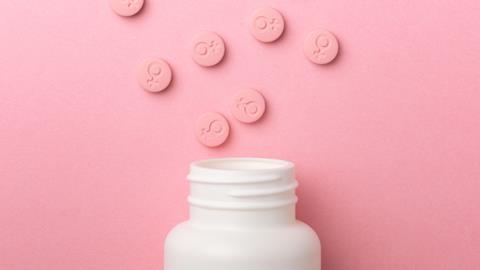


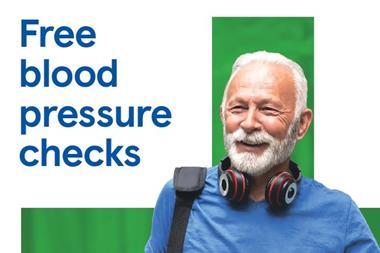

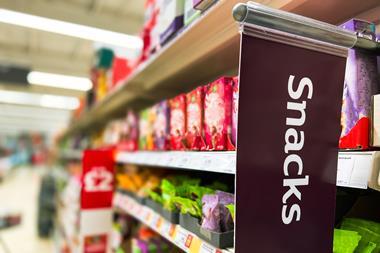
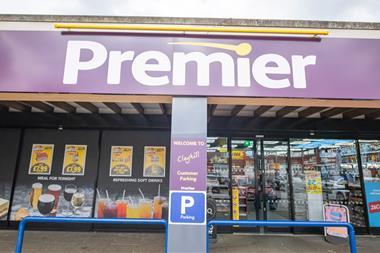

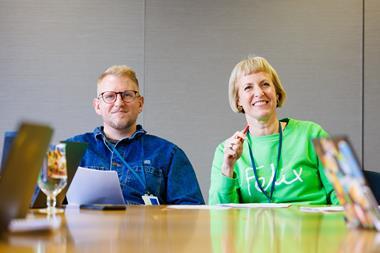

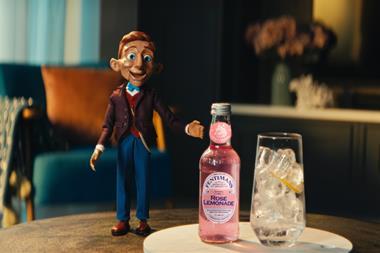


No comments yet